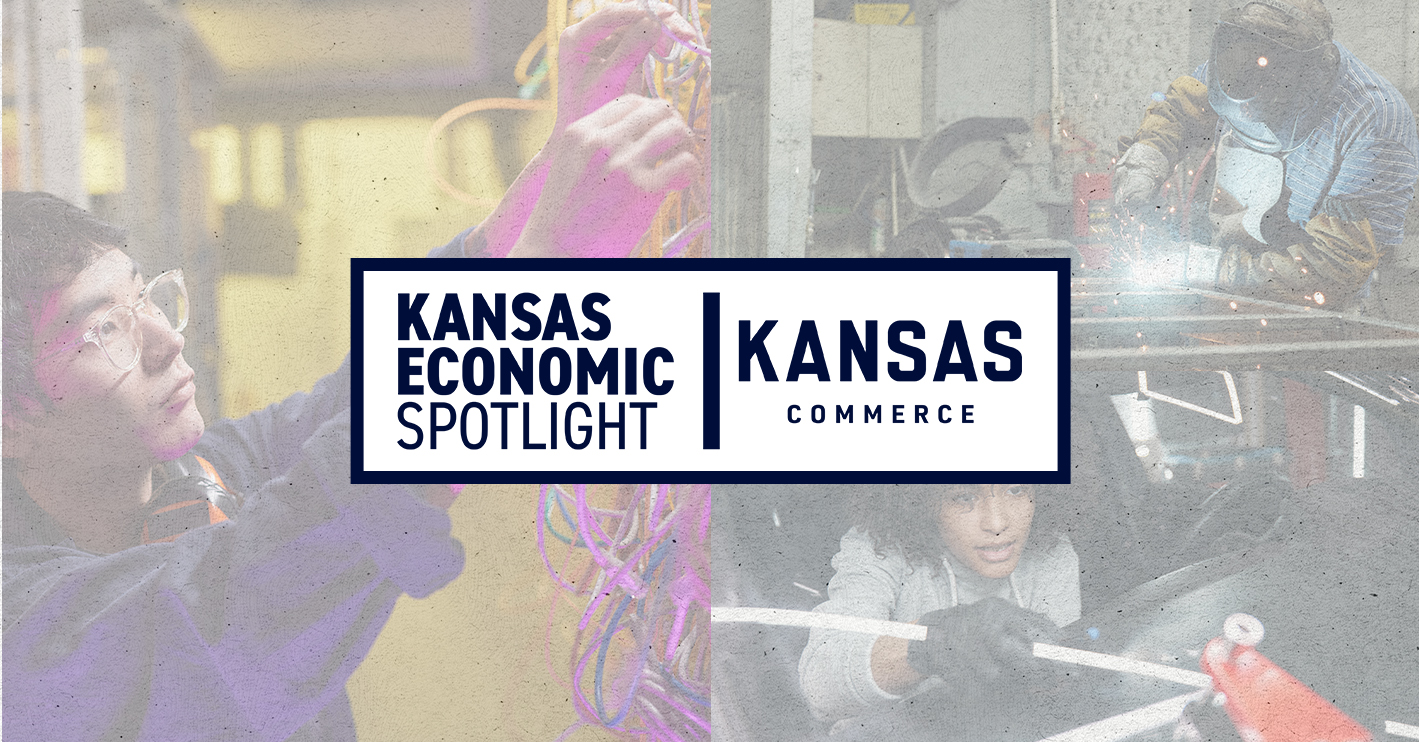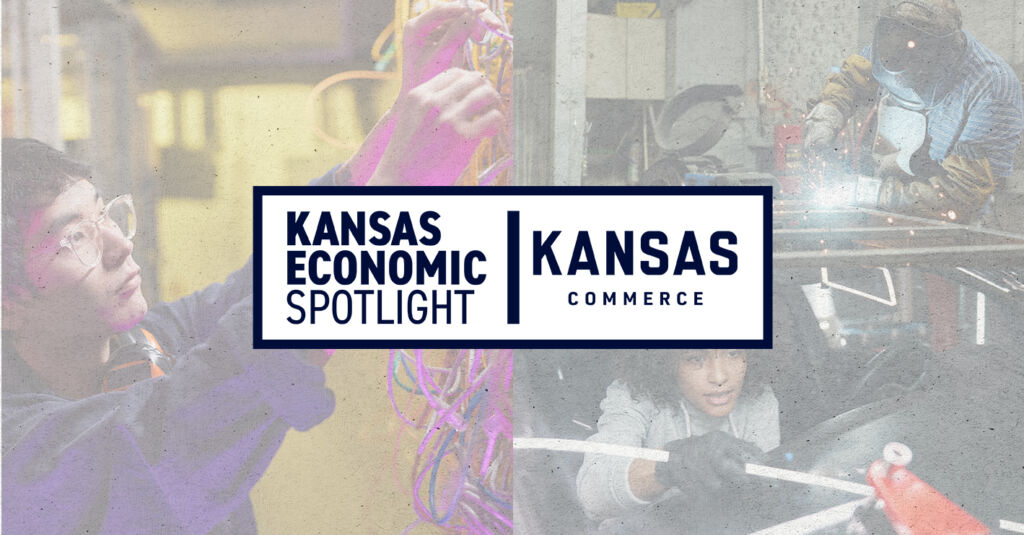
Mar 17, 2023

Chandler Roetzer’s highest priority is providing a good life for his family here in Kansas, which is why he’s developing high-tech job skills that will be in demand now and in the future.
Roetzer, 26, is an Electrical Automation Tech apprentice at Great Lakes Polymer Technologies (GLPT), a global leader of innovative polymer engineering. Roetzer focuses on wiring at the Kingman manufacturing plant, where on-the-job mentoring has been key to his success.
Roetzer’s apprenticeship also includes classes in computer programming at Hutchinson Community College, where he’s an honor student. When he finishes school, he’ll be a full-fledged, skilled leader in Electrical Automation — and GLPT will have a well-trained, experienced worker in a growing field.
As workforce shortages persist nationwide, Kansas has taken a bold step forward in preparing Roetzer and many more of the state’s residents for critical, in-demand careers.
The Office of Registered Apprenticeship within the Kansas Department of Commerce is helping employers and prospective employees beat the skills shortage with apprenticeships in fields both traditional — construction and manufacturing, for example — and non-traditional: healthcare, education, human resources, information technology and other critical areas. Established by Governor Laura Kelly’s Executive Order #22-07, the Office of Registered Apprenticeship is equipping Kansas workers with the specific skills and opportunities they need to compete in today’s evolving, global economy.
Thanks to efforts and funding coordinated by the Office of Registered Apprenticeship, more than 3,500 Kansans currently are working as paid apprentices, receiving training, skills and mentorship in some 150 occupations. More than 200 employers are participating, a number sure to rise.
Paid apprenticeships are full-time positions that have the promise to keep more workers, and in particular young residents, in Kansas — a high priority for the Kelly administration. U.S. Department of Labor data shows 92 percent employment retention nationwide after the completion of an apprenticeship, with an average starting salary of $72,000.
Kansas-based partnerships with traditional and technical colleges, economic development offices and other stakeholders are fueling in-demand apprenticeships. The program’s efforts received a significant boost when the Patterson Family Foundation awarded $100,000 to expand rural healthcare apprenticeship programs.
It’s a way to give every Kansan — no matter their background or geography — access to the tools they need to contribute and succeed. Plus, the apprenticeship program is knocking down barriers to employment for veterans, women, people of color and the formerly incarcerated.
Hamilton-Ryker provides workforce solutions in Kansas and beyond, and currently has a grant through the Office of Registered Apprenticeship. Lana Gordon, Kansas Grant Manager for TalentGro, a division of Hamilton-Ryker, said partnerships are making new apprenticeship opportunities possible.
For example, Gordon said a western Kansas manufacturing firm successfully hired a man who, while incarcerated in Kansas, was bussed from prison to the local worksite as part of his apprenticeship. Upon his release, he had a good job and place to live for a fresh start in life. The work-based mentorship and intentional technical training he received was a difference-maker, according to Gordon.
The Registered Apprenticeship program isn’t a union-only training system. A growing number of nontraditional apprenticeship programs in healthcare, IT, HR and other in-demand fields are providing family-sustaining wages and workforce solutions.
Employer designed and driven, the program creates long-term employment through five core components: on-the-job training, related technical instruction, mentorship, wage progression and industry-recognized credentials. As successful apprentices tend to stay on with companies longer, hiring risks and costs are lower for employers.
The work of the Kansas Apprenticeship Council, a 12-member group appointed by by Lieutenant Governor/Commerce Secretary David Toland, was key in modernizing the Registered Apprenticeship Program. The Council helps establish programs in traditional and non-traditional jobs and approves submitted program requests. Monthly Dinner Bell Calls cover apprenticeship program resources and much more for employers interested in recruiting or retaining skilled talent. The calls are from 10 to 11 a.m. on the second Wednesday of every month — virtually at bit.ly/dinnerbellcall or by phone conference: (785) 414-8630, phone conference ID 667 380 007#.
As Chandler Roetzer and many other Kansans now know, there’s no need to look beyond the state’s borders for career opportunities — especially as apprenticeships give them the tools they need to succeed right here in Kansas.
To learn more about Kansas’ award-winning economic development programs, please visit the Kansas Department of Commerce website at kansascommerce.gov/news.